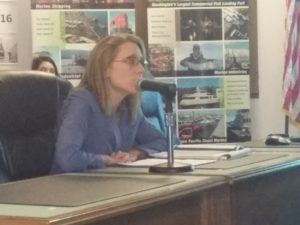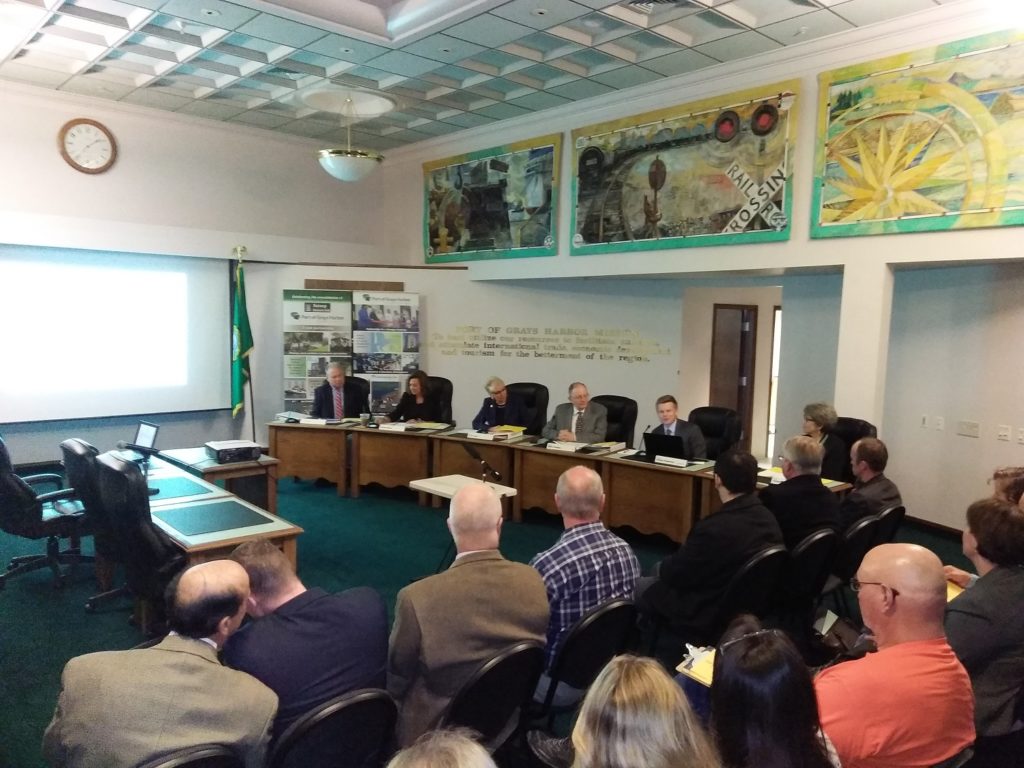The following newsletter was sent to subscribers to Sen. Padden’s Report From Olympia, Sept. 21, 2017. To subscribe to Sen. Padden’s newsletters, click here.
Dear friends and neighbors,
Next week the Senate Law and Justice Committee launches an investigation of Sound Transit and the $54 billion bond issue it passed last year. The issue may not affect us directly in Spokane County, but it should be a concern for anyone interested in good government. This agency runs a light-rail network in the greater Seattle area, and it has been accused of making misleading claims to the Legislature and the public as it pushed its enormous ballot measure. At the very least, we in Spokane Valley can be sympathetic to the poor souls in King, Pierce and Snohomish counties who renewed their license tabs this year and found the cost to be hundreds of dollars more than expected.
Our investigation begins with a hearing Tuesday in Kent, and it is an indication that things are starting to ramp again in the Legislature after our brief summer break.
In other news, a new study confirms the staggering cost of the Supreme Court’s Hirst decision, which makes it difficult for rural and suburban property owners to drill new wells. And a work session last week before the Law and Justice Committee revealed disturbing information about the state attorney general’s effort to impede enforcement of federal immigration laws. This and more in this week’s newsletter.
Sen. Mike Padden
Questions deepen about attorney general’s immigration ‘guidance’

Deputy Solicitor General Rebecca Glasgow testifies before Senate Law and Justice Committee in Aberdeen. TVW video available here.
In some circles, it has become fashionable to oppose the enforcement of federal immigration laws. But when the person leading the charge is the state’s top legal official, we ought to be concerned. Normally we expect the Washington attorney general to enforce the law, not stand in its way.
Last spring Attorney General Bob Ferguson released a lengthy “guidance” document for state and public agencies, outlining all the ways they can impede federal immigration officials as they attempt to enforce the law. I offered a protest at the time – you can read about it here. Last week we had a chance to chat with the attorney general’s office about the issue, at a work session in Aberdeen, and the testimony confirmed our fears.
Deputy Solicitor General Rebecca Glasgow told us the only organizations she contacted as she wrote the document were those that oppose federal immigration policies – the American Civil Liberties Union, the Northwest Immigrant Rights Project and others. Their input weighed heavily in the final document. She got no input from the police or prosecutors who enforce the law, from county or city organizations, or any of the agencies the attorney general’s office hopes to influence. Glasgow told us she read a letter from the Washington Association of Prosecuting Attorneys and assumed it supported the attorney general’s position. A phone call could have cleared that up, if she had made one.
It appears the attorney general’s office started with its conclusion already in mind, sought support from organizations inclined to agree with its political position, and ignored anyone who might disagree. The most disturbing element is that “guidance” from the attorney general’s office cannot easily be ignored. The same organizations that helped write it can use it as the basis for lawsuits against agencies that do not follow it. That seems to have been the idea. Glasgow told us, “We wanted to make sure local governments are aware of… the liabilities they can face if they violate people’s 4th Amendment rights.” The argument presumes rights are somehow being violated, a decision that properly belongs to the courts. The document also glossed over the liabilities agencies can face for standing in the way of federal law enforcement authorities as they carry out their legal responsibilities. The idea we can choose which laws we like and ignore the rest should trouble anyone who believes in the rule of law.

At Freeman High School, students, parents and others pay tribute to sophomore Sam Strahan, killed in last week’s school shooting, and to others who were injured. Our prayers are with the students and families who must deal with this unfathomable tragedy.
Study shows Hirst decision will cost $7 billion a year
A new study commissioned by the Building Industry Association of Washington reveals the astouding cost of the Supreme Court’s decision in the Hirst water rights case. This ruling imposes stiff new hurdles on property owners who need permits for small household wells. These wells have so little impact on overall water supply – less than 1 percent statewide — that the state has traditionally exempted them from formal water rights requirements. But the court decision now requires property owners to prove their wells won’t impact fish runs in streams and rivers, forcing them to obtain costly studies. This is no guarantee of approval. Many counties say they lack the ability to judge, and some have already stopped issuing permits. Banks are telling us they are unwilling to lend money on property when water availability is in doubt, and for months we have been warning of a collapse of rural property values and a devastating moratorium on rural development.
The study, conducted by the independent research firm HR2, tells us that if the decision is allowed to stand, we can expect property values to plummet by a mind-boggling $37 billion. Every year we will see a nearly $7 billion loss in economic activity. And as receipts from property taxes fall, we can expect to see a shift of $346 million annually in property taxes to the owners of parcels that have already been developed. You can read the study here.
This study demonstrates that Hirst is one of the most urgent problems before the Legislature. In the Senate this year, we repeatedly passed a bill that would overturn the court’s decision. When it was ignored by the House, we held up approval of the state’s $4 billion public works construction budget. Although this delay has drawn sharp criticism from those who wish to let the ruling stand, the immense cost to individuals and the public demonstrates we are right to force this issue to center stage.
Spokane Valley City Council weighs in on Hirst
Last month the Spokane Valley City Council passed a resolution urging the Legislature to pass a Hirst fix, pointing to local impacts that already are becoming apparent. Among other things, it states, “The Hirst decision has had an extremely detrimental impact on the ability to develop residential properties which require wells, which is severely impacting many property owners across the state of Washington, including property owners in the City of Spokane Valley.”
The resolution urges the Legislature to “act with all due haste in adopting a legislative fix” to “minimize or eliminate the negative impacts on private property owners across the state.”
A half-billion reasons for property tax relief
A new state revenue forecast released Wednesday demonstrates the strength of the Washington economy, and shows the state can manage well without raising taxes. Thanks to rising economic activity, the state will collect $534 million more in taxes than earlier estimated. Our budget chief in the Senate, Ways and Means chair John Braun, R-Centralia, is suggesting that 75 percent of this windfall be used for tax relief, to ease the transition to the new school property-tax system approved by the Legislature this year.
Contact us
If you have a question or concern about state government, please do not hesitate to contact our office. We are here to serve you!
Phone: (509) 921-2460
Street address: 11707 East Sprague Ave., Suite 305, Spokane Valley, WA 99206
Email address: Mike.Padden@leg.wa.gov












